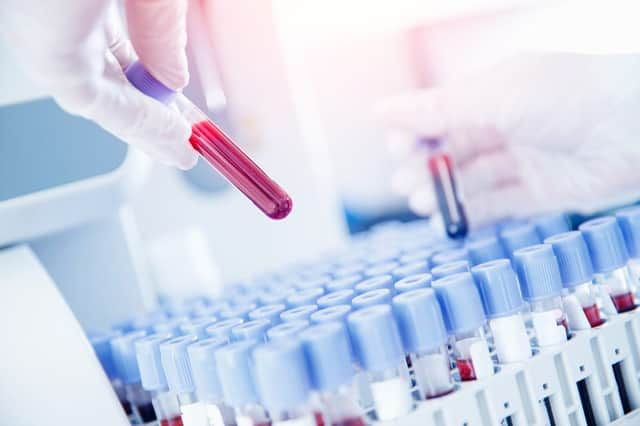Covid antibodies found in almost 90% of over-80s after two doses of Pfizer vaccine


One in seven people have antibodies against Covid-19, according to new research, with almost 90 per cent of people over the age of 80 testing positive for antibodies after two doses of the Pfizer-BioNTech vaccine.
Researchers at Imperial College London have been monitoring Covid antibody levels in the population over several months, with finger prick blood tests carried out on more than 154,000 people across England showing that 13.9 per cent had antibodies between 26 January and 8 February.
Advertisement
Hide AdAdvertisement
Hide AdOver 17,000 of those randomly asked to take part in the React-2 study had received at least one dose of a vaccine.
The study showed that 87.9 per cent of people over the age of 80 tested positive for antibodies after two doses of the Pfizer-BioNTech vaccine. This rose to 95.5 per cent in those under the age of 60 and 100 per cent in those aged under 30.
This aligns with existing research which suggests that those aged over 80 take longer to develop a response to infection and the immune response is not as strong.
The body makes antibodies in response to dangerous microbes and can be important for defending against disease.
Advertisement
Hide AdAdvertisement
Hide AdHowever, there is currently not enough data to say how protected someone may be from Covid-19 based on a positive antibody test result, and it does not mean that a person is immune to the virus.
Confidence in the vaccine was also generally found to be high, with 92 per cent of the study’s participants having already accepted or planning to accept the vaccine.
However, confidence in the vaccine was found to vary by age and ethnicity, with 72.5 per cent of people with black ethnicity saying they would have the jab, and 83 per cent of 18-29 year olds planning to receive the vaccine.
The three most commonly selected reasons for hesitancy regarding the Covid vaccine were wanting to wait and see how the vaccine works, worries about long-term health effects, and concerns about side effects.
‘Very high effectiveness in terms of antibody positivity’
Advertisement
Hide AdAdvertisement
Hide AdProfessor Paul Elliott, director of the React programme, Imperial College London, said: “Overall there’s very high effectiveness in terms of antibody positivity from two doses of the BioNTech, and also from a single dose in people who have had prior infection, that much we know.
“And also, although there is some fall off in positivity with age, at all ages we get that very good response to two doses of the vaccine.
“And in terms of the confidence in the vaccine, it’s very, very high, although there are some groups where it’s a bit low, and that includes some ethnic minority groups and some younger people.”
Health Secretary Matt Hancock welcomed the generally high confidence in Covid vaccines and encouraged people to receive a jab.
Advertisement
Hide AdAdvertisement
Hide AdMr Hancock said: “These findings shed more light on rates of antibodies across the UK and among different groups, as we continue to strengthen our understanding of Covid-19.
“It is fantastic to see over 90 per cent of people surveyed would accept or had already accepted a vaccine, as we continue to expand the rollout.
“I urge anyone who has been invited for a vaccine to book an appointment.”